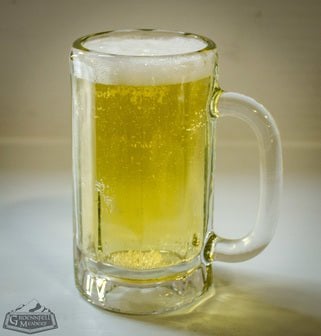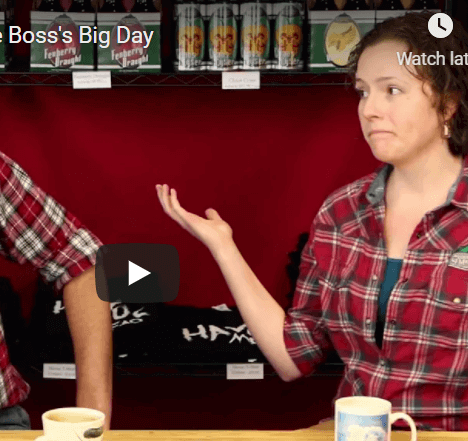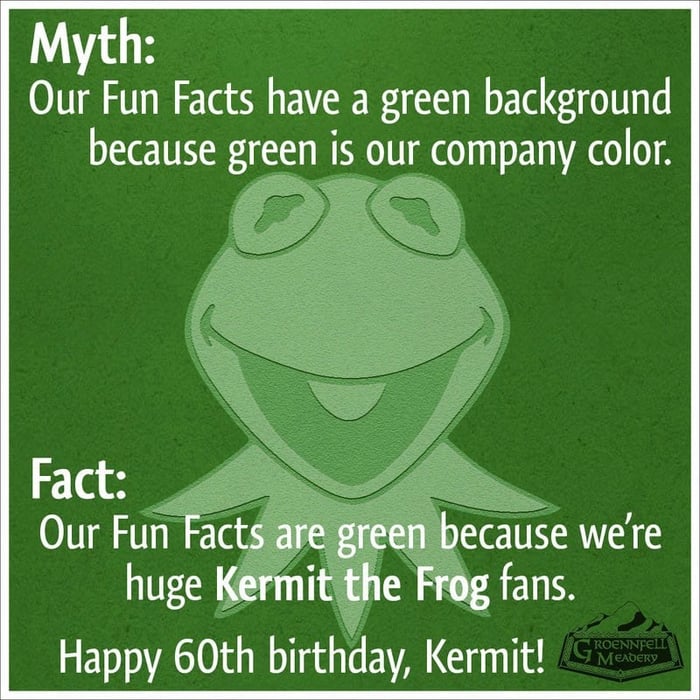Do you brew mead? Make mead? Ferment mead? Bring together the requisite components so that mead is the ultimate product?
We would disrecommend this final option except for technical papers which are running a bit short, but all of the others are valid.
The End.
Just kidding, that’s not the way the internet works. It turns out that a fair amount of digital ink has been spilt over using the term “brewing” to refer to the production of mead. The claim is simple: “only beer is brewed; everything else is fermented.”
It constantly shocks us that some people have an internet connection that allows them to post things to the internet but does not allow them to receive information from this wonderful resource of all things fractious. Everyone who argues this is a dundering chuckle-head.
See what we did there? That’s usually how these discussions go. We know that there’s no such things as a one way internet connection.[1] We feel strongly that if people would first type into Google what instead ends up being typed frantically into a forum, the world would be a calmer place.
Moralizing done; now onward to linguistics.
First of all, most dictionaries list “Brew” and “Ferment” as synonyms, so that’s a good sign that the dichotomy is at least somewhat spurious in common usage. Strictly speaking, ferment means the conversion of sugars to alcohol by yeast, mold, or bacteria. By extension, any product placed in the fermentation vessel at the time of active fermentation can be said to be “fermented with…” or “fermented on…” This is where we find our first important nuance.
A mead “fermented with cinnamon” is a product which has been produced by combining honey, water, cinnamon and yeast, while a mead “brewed with cinnamon” may be a mead that has been packaged with a stick of cinnamon in each bottle. Subtle, but important.
For those who argue that the only thing brewed is beer because of Google’s helpful definition, “make (beer) by soaking, boiling, and fermentation,” they have missed the fact that “beer” is included as “(beer).” In other dictionaries one finds, “(beer, ale, etc.)” in place of just “(beer)” and “to concoct, mix, or cook a beverage or food…” Plus, y’know, coffee and tea.
Another reason to accept “brew” as a term for making mead is more aesthetic: It helps to avoid repetition. In blog posts, books, and web fora, it gets tiresome to read the same word over and over. This is why English in particular and languages in general have such a plurality of terminology for identical or nearly identical objects and practices.
Why we choose to brew
At Groennfell Meadery we have four very important pragmatic reasons for using the word brew beyond the technical importance listed above:
- First, “brewed” is shorter than “fermented.” For things like our mead varieties poster, those three extra letters simply didn’t fit nicely.
- Second, we have found that many, many people know (or have a sense of) the word “brew” but do not really understand “ferment,” and it helps to speed along the conversation.
- Third, we have found that it prevents confusion. Both on the phone and in person “I brew mead” is more often understood correctly than “I make mead” which often leaves the listener believing that we are some sort of artisanal butcher shop.
- Fourth, since we make craft mead, we take advantage of the fact that the connotation of “brewed” evokes images of beer breweries rather than wineries. This helps us give our consumers a better understanding of what we produce.
History and Etymology
Historically, we find the term being used regularly. In one of the earliest popular sources for mead recipes, The Closet of Sir Kenelm Digby Knight Opened, the author doesn’t hesitate to use the term “brew” in mead and metheglin recipes, “Then take two Gallons of English-honey, and dissolve it in this hot Liquor [spiced water], and brew it well together…”[2]
For the final nail in this coffin, let’s turn to the etymology. That “bhr-” at the beginning gives one a sense that we’re coming from Proto-German or Old English with deep roots in PIE, and you’re not mistaken! From its earliest sense, our word “brew” has meant to boil, bubble, foam, or ferment. The first known usage, in fact, leads to the sense of “to make a drink by boiling.”[3] And before you argue that you don’t boil your mead, A: Almost all historical recipes called for boiling, and B: Read This.
So there you go! Though we very well know that nothing is ever “settled” on the internet, we hope that this helps!
[1] Well, most of us do. Ricky writes out all of his Facebook posts and mails them to Mark Zuckerberg with the memorandum “please kindly post at your earliest convenience.”
[2] Digby, Kenelm. The Closet of Sir Kenelm Digby Knight Opened. The Project Gutenberg EBook. EBook #16441. page 64
[3] Some argue that the frothing is a reference to the fermentation rather than the boiling, but etymological speculation is a dark road through a dangerous forest.





